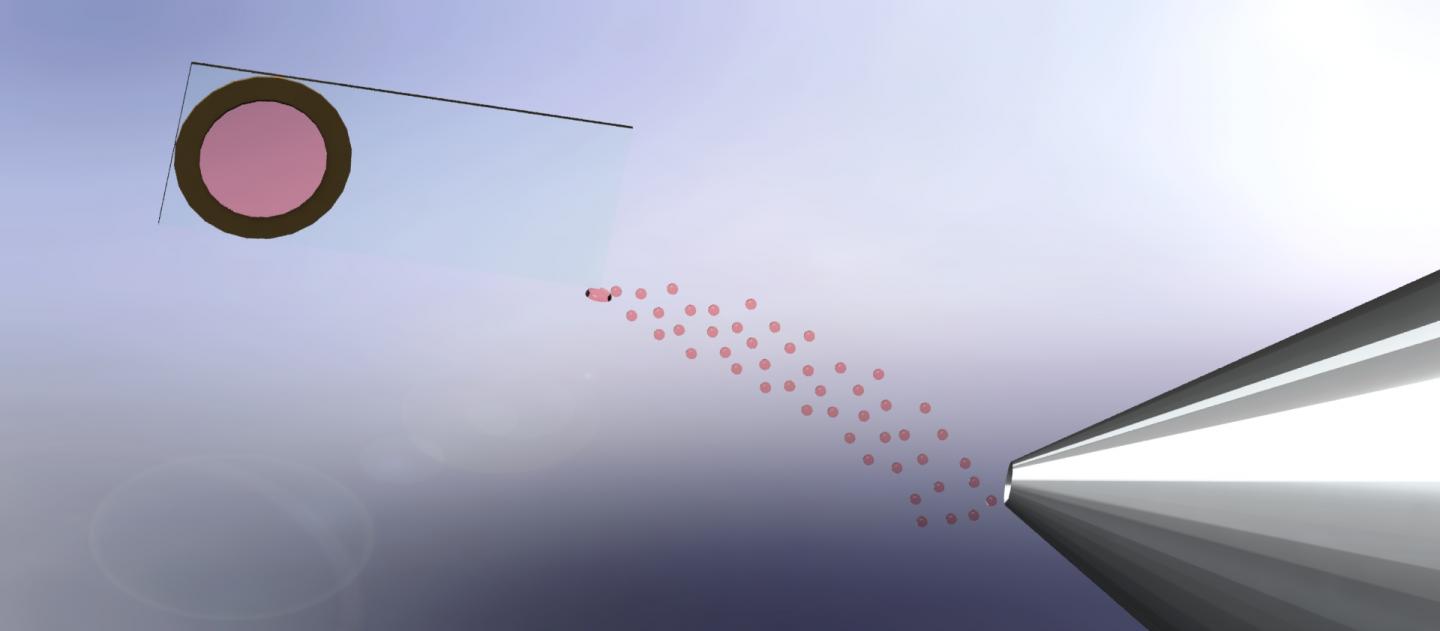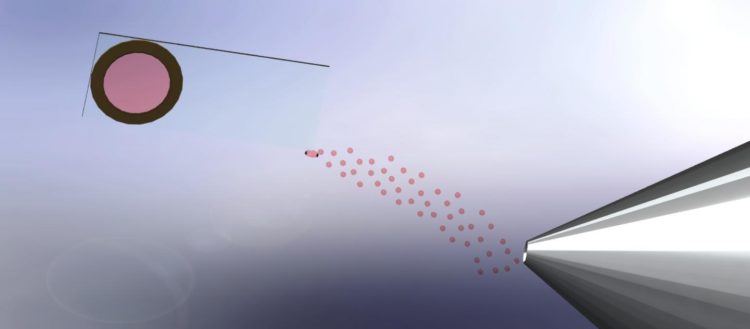
Credit: Xiaojun Li/West Virginia University illustration
New research from West Virginia University is transforming technology for biomedicine and beyond.
Eberly College of Arts and Sciences faculty in the C. Eugene Bennett Department of Chemistry are simplifying experiments in mass spectrometry, a method commonly used by chemists, biologists, physicists and forensic scientists for analyzing molecular materials.
While mass spectrometers require materials to be ionized, or gain an electrical charge, before they can be examined, the WVU research team has created an instrument that goes straight to the source.
The vibrating sharp-edge spray ionization device, created by Assistant Professor Peng Li and his research group, is a rectangular piece of glass approximately 2.5 inches long and one inch wide that collects and ionizes samples on the spot.
“The application of mass spectrometry in probing dynamic biological processes will be greatly enabled and easily adopted by a broader range of research groups,” Li said. “We think this can be a unique way of generating ions. We want to leverage the technique and hopefully enable new studies.”
Traditional mass spectrometry methods can be unwieldy and time-consuming because of the time and tools required for ionizing samples. They are often difficult for probing complex biological systems in a nondestructive manner because of ionization’s required high voltage, which can negatively affect delicate biological systems. In contrast, the VSSI probe is inexpensive, easy to use because of its size and can ionize samples at high speeds.
Funded by a five-year, $1.7 million R01 award from the National Institutes of Health, the research team is initially focusing on making biological analysis more efficient. The new tool can detect chemical information directly from living biological systems in a non-invasive manner and can be used for both fundamental biomedical research and in clinical applications.
“A particular method is used to probe biological systems. Right now, the standard method is collecting all of your samples from the system, preparing them and then seeing what’s inside,” Li said. “But with this method, you can still maintain your dynamic biological environment as you probe the system. This way, we can get new information. If we leverage this biocompatible and efficient way of generating ions, we can provide some useful tools for biologists.”
In addition to biomedicine, the research team plans to explore ways to use this method in the future in applications like agriculture, biometrics and forensic science.
“This method has great potential for a wide range of applications,” Li said. “It can be used for drug screening, fingerprinting and testing the surface of fruits and vegetables for pesticides.”
###
Co-investigators on the study include Associate Professors of Chemistry Stephen Valentine, a mass spectrometry and ion mobility spectrometry expert, and Justin Legleiter, who studies disorders that affect the brain and nervous system like Huntington’s disease and Alzheimer’s disease.
Media Contact
Katlin Swisher
[email protected]
304-293-9264
Original Source
https:/





